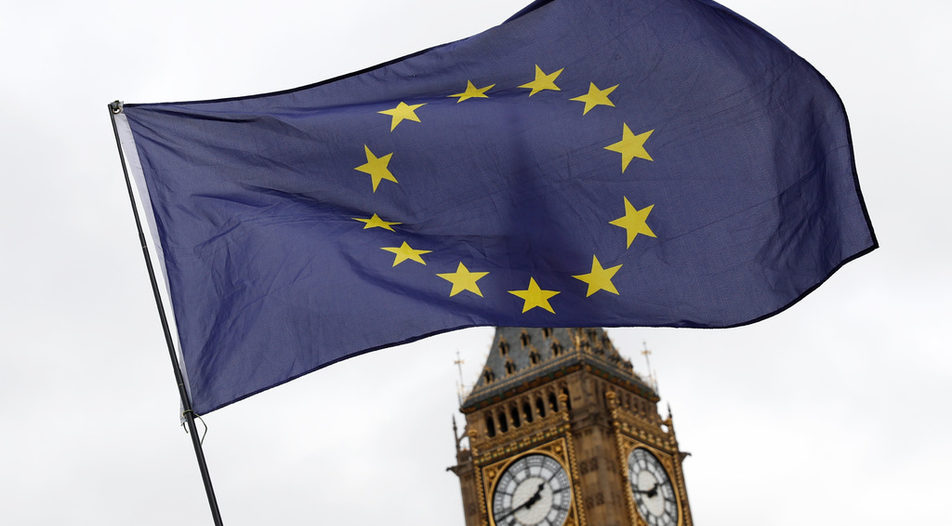Unprepared. This is the mild way one could describe Bulgaria's position vis-a-vis the process of the UK leaving the European Union after the 2016 referendum. "Clueless" would be a more adequate description, though. Bulgarian politicians have said little about the country's priorities during the negotiation rounds and absolutely nothing of the sort high-ranking Lithuanian officials like the Mayor of Vilnius Remigijus Simasius had done - inviting British businesses to their country.
Paradoxically, for a country which doesn't host any EU institution, Bulgaria was the last to apply to accept some of the EU agencies that will need to leave the UK. The main reason is the inferiority complex of Bulgarian politicians who a priori write off Bulgaria's chance.
Political disinterest and lack of administrative capacity
Little is known about the work of the state administration, if any, to anticipate the economic consequences of Brexit for Bulgaria. In 2016 there was an attempt to collect the views of all government departments, but few of them returned answers. And nobody knows if Sofia has a contingency plan in case the UK does not pay its bill to the European budget. Instead, high ranking Bulgarian officials brag about Sofia's role in the Brexit negotiation during the country's pending six-month presidency of the Council of the EU next year. In fact, the presidency has no role in the negotiations which are led by the European Commission under the guidance of the European Council.
The UK is contributing 12.6% of the EU budget, or between 8.5-9.5 billion euro per year for the 2016-2019 period. Should the UK decide to leave the Union without observing its paying commitments and assuming that the other member states chose to fill the void with increased contributions to the EU budget, Bulgaria will have to pay 50 mn euro annually in addition to its current contribution. However, if the EU decides to cut its budget by the amount of the absent UK money, Bulgaria will be getting up to 100 mn euro less per year. However, this scenario has not been considered in Sofia. Which explains why the only priority Bulgarian politicians have already outlined is the need to to continue the cohesion politics after Brexit. But money is not the only thing that matters.
Last, but not least, no Bulgarian politician has tried to publicly reassure the tens of thousands of Bulgarian students and workers currently residing in the UK that their state would stand by their rights. With at least 100 000 Bulgarians presently living, studying or working in the UK, the issue of rights should not be brushed off that easily. Bulgarian politicians need to signal their compatriots abroad, whose remittances contribute 0.12% to the GDP (according to Standard & Poor's), that they will get all required support from the state.
Partially, this ignorance could be attributed to the political turbulence through which Bulgaria went last year. Prime Minister Boyko Borissov was too preoccupied with tackling the implications for Bulgaria of the attempted coup d'etat in Turkey last July, just a month after the Brexit vote. Then came the presidential elections, and the snap vote for parliament. As always, the election campaigns focused on issues of lesser importance than the potential global impact of Brexit. Then came the forming the third Borissov government and a year had passed since the 23 June 2016 vote in Britain.
Also, it's the general lack of international aspirations on behalf of Bulgarian politicians and expertise, on behalf of the Bulgarian administration, that are to blame. But in any case, the EU-UK negotiations had already started and Sofia needs to make a stand. Because the potential impact of the Brexit process would be too big to be simply ignored. It would range from the uncertainty about the British contribution to the EU budget, the fights that would ensue between different countries and lobbies within them about the allocation of funds from now on, to the disruption of the "balance of power" in Brussels with regard to key policy areas including energy market liberalization, tax harmonization, business regulations, etc.
Bulgaria may face problematic post-Brexit future in the EU
Without the UK, a crucial liberal, anti-centralisation voice in EU affairs will be lost. As well as the important third pillar that balances out the two major European stakeholders - France and Germany. This might have its good effects on the consolidation of the Union (something Bulgaria can benefit from), - but also puts at risk some strategic interests of our country.
First of all, there is the question of centralised financial regulations. The UK has long opposed them, aiming to preserve London's special status as a financial capital of the world. The country's exit from the EU will strengthen the position of Paris and Berlin for greater regulation of this sector, meaning that countries with weaker supervisory institutions like Bulgaria may benefit from a common EU regulation mechanism. Bulgaria's failure to prevent the collapse of Corporate Commercial Bank (KTB) in 2014 showcased the flaws in the oversight by the Bulgarian National Bank (BNB) and the Financial Supervision Commission (KFN), so a EU-wide regulatory regime might actually increase the trust in the banking system for domestic clients and foreign investors alike.
Brexit might also spur Brussels' drive towards a common European consolidated corporate tax base (CCTB) - a policy that, in theory, might hurt Bulgarian interests, as it will require the unifying of EU member states' tax codes, which could decrease Bulgaria's comparative advantage of having one of the lowest corporate tax rates in the Union. Implicitly, CCTB would require the rewriting of the Bulgarian tax code to make the tax base narrow and give the leverage to make corporate taxes higher. Although Sofia would retain many non-tax advantages, like lower costs to run a business, its most promoted feature - the low flat tax rate - might have to be dropped without the decision-blocking power of the UK.
Bulgaria will also lose a key ally when it comes to the fight for energy market liberalisation on the continent. London has long called for a more liberal, inclusive energy market, but with limited interference from Brussels, which strives to make the European Commission and not the member states setters of the energy agenda of the Union. This would make it easier for larger countries like Germany to push for controversial (at least for the rest of Eastern Europe) projects like the Nord Stream II gas pipeline from Russia, while possibly neglecting Bulgaria and the likes of it on the Balkans.
Last, but not least comes the question of general integration post-Brexit. The UK has long obstructed the consolidation of the EU in key sectors like security, migration policy, Eurozone, etc. Brexit does not automatically mean Bulgaria will be admitted into the Eurozone and the Schengen free-travel area, it actually might spell the country's marginalization on the outer rim of Europe unless Sofia proves capable of implementing the much-needed reforms. The political elite has been postponing those reforms indefinitely, because it has been happy to be a net beneficiary of EU funding without attempting in earnest to adapt to the rule of law requirements of Brussels.

Unprepared. This is the mild way one could describe Bulgaria's position vis-a-vis the process of the UK leaving the European Union after the 2016 referendum. "Clueless" would be a more adequate description, though. Bulgarian politicians have said little about the country's priorities during the negotiation rounds and absolutely nothing of the sort high-ranking Lithuanian officials like the Mayor of Vilnius Remigijus Simasius had done - inviting British businesses to their country.












